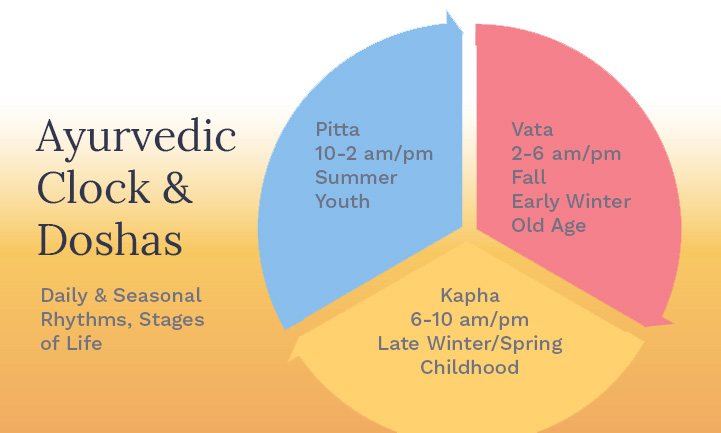
It is crucial for our well-being to sleep, but how much is too much? Sleep has to be balanced and personalized according to Ayurveda, the ancient Indian medicinal system. This post examines the complex understanding of sleep in Ayurveda and provides insights that are meant for maintaining good health through proper restfulness.
What is Sleep in Ayurveda?
In Ayurveda, sleep is known as “Nidra” and is considered one of the three pillars of health, alongside diet and lifestyle. It is essential for maintaining balance in the body and mind, helping to rejuvenate and restore energy, support cognitive function, and promote overall physical and mental well-being.
Those with Vata dominance might need more hours because they are naturally energetic with a fast metabolism while Pitta personalities should take moderate amounts so as not to worsen their already intense nature. Kapha individuals tend to have a slow metabolism and hence may require less sleep than others. What matters most is following one’s own biological clock as per Ayurvedic teachings about this matter.
How does Ayurveda determine the ideal sleep duration?
Ayurveda determines the ideal sleep duration by restoring the body’s balance, rejuvenating tissues, and maintaining mental clarity. It supports digestion, detoxification, and emotional stability. Proper sleep enhances overall health by balancing doshas and replenishing energy, making it a foundational element in Ayurvedic wellness practices.
Ayurveda lays emphasis on patterning sleep according to dosha to bring about physical and mental equilibrium. Vatas, being typically more energetic, need more sleep to offset their active nature. Moderate sleep is necessary for Pitta types in order to manage intense and driven characteristics.
Meanwhile, Kapha types require less sleep due to their constitution that is already primarily lethargic. Ayurvedic recommendations are individual variables of lifestyle characteristics considered to affect the amount of sleep required and would include stress levels, work demands, and seasonal changes. It ensures perfect health and harmony in daily life.

What Does Ayurveda Tell Us About Afternoon Sleep?
Ayurveda tells us that afternoon sleep, or “diva Swapna,” can be beneficial for some, especially for those who are ill, elderly, or physically exhausted. However, it advises against it for people with Kapha dosha dominance or those who are overweight, as it may increase lethargy and imbalance the doshas.
Generally, Ayurveda suggests taking rest before 3 pm because this will not interfere with the normal sleep pattern of an individual. The best duration for a nap should be between ten to twenty minutes which is enough time for one to re-energize without falling into deeper phases where he/she might wake up very tired.
Why Do I Always Wake Up at 2 am?
Waking up at 2 a.m. can be due to various factors, including stress, anxiety, or an irregular sleep schedule. It might also be caused by external factors like noise or light disturbances, or physiological reasons such as changes in blood sugar levels or needing to use the bathroom.
In Ayurvedic terms, waking each night at around two o’clock could mean that there is excess pitta in your system. Pitta dominates during midnight hours when most metabolic activity takes place; thus, its imbalance can be caused by stress or improper eating habits. To cool down pitta and encourage better sleep, try drinking some aloe vera juice before going to bed also ensure that you create a cooler dark sleeping environment as well.
Which Sleep Position is Right According to Ayurveda?
According to Ayurveda, sleeping on your right side is the best position as it allows for left nostril breathing which activates cool and calming energy from the moon.
This is good for people with pitta or vata imbalances. Also, this posture supports digestion while slowing down the heart rate thus enabling deep restful sleep. On the other hand, if you’re kapha dominant it might be helpful to lay on your left side because it triggers heat in our bodies that comes from sun energy.
What Ayurvedic practices promote better sleep?
Ayurvedic practices such as oil massages, meditation, and herbal teas for inducing sleep. One of the most fundamental habits for good sleep is winding down by performing a daily bedtime routine. Avoid stimulating activities before bed and balance doshas with diet and lifestyle to ensure peaceful sleep, which sustains overall well-being.
Abhyanga relaxes the nervous system before going to sleep and encourages relaxation in the body. An herbal tea containing herbs like chamomile and ashwagandha relaxes one and produces good sleep. It pacifies the mind and prepares it for sleep.
A nocturnal habit of meditation and deep breathing, combined with the windy atmosphere, sets the backdrop for a good night’s sleep. Keeping away from screens and stimulating activities before bed improves the quality of sleep. It brings balance and rejuvenation.

Why do I wake up at 3.30 am spiritually?
You might wake up at 3:30 a.m. because it can feel special. Some people believe it’s a time when our minds are extra open, making it easier to think and feel things deeply.
Waking up around 3:30 a.m., which happens to be right before Brahma Muhurta time between four and six o’clock in the morning, has been recognized as having spiritual significance across multiple cultures including those influenced by Ayurveda philosophy. During this period many consider it best suited for meditation, reflection, or other forms of spiritual practice due to greater levels of Sattva purity/harmony. Thus engaging in such activities within these hours might deepen one’s connection with their own spirituality while also bringing about more mental clarity along with inner peace.
Does Ayurveda offer a solution to the problem of insomnia?
Ayurveda addresses insomnia by identifying imbalances in doshas and suggesting remedies like calming herbs, dietary changes, and stress-reduction techniques. Practices like yoga, meditation, and oil massages help restore balance, promote restful sleep, and address the root causes of insomnia.
Treatment of insomnia in Ayurveda begins with the identification of the dosha imbalance at the root of one’s sleep disturbances. Herbal remedies like Brahmi and Ashwagandha pacify the mind and drive away anxiety. Dietary adjustments, avoiding stimulating substances like caffeine and not indulging in heavy meals in the evenings, allow the body’s natural sleep-wake cycle to flourish.
Stress-reduction techniques, part of which are yoga and meditation, provide relaxation for the mind and the body, which is followed by regular oil massages for soothing the nervous system and hence allowing one to sleep better and more healthily. By treating the root cause, Ayurveda offers complete solutions for the conquest of insomnia.
Wrapping Up!
The sleep section of Ayurveda is intricate and personalized because it focuses on balancing the energies (doshas) that underpin human existence for better health. Through understanding how these principles apply to your sleep patterns, dietary intake and general well-being you will be able to achieve a more balanced as well as deeper rest during bedtime hours. Embrace these practices which have stood test after time and see them not only transform your nights but also enhance overall energy levels throughout the day.

